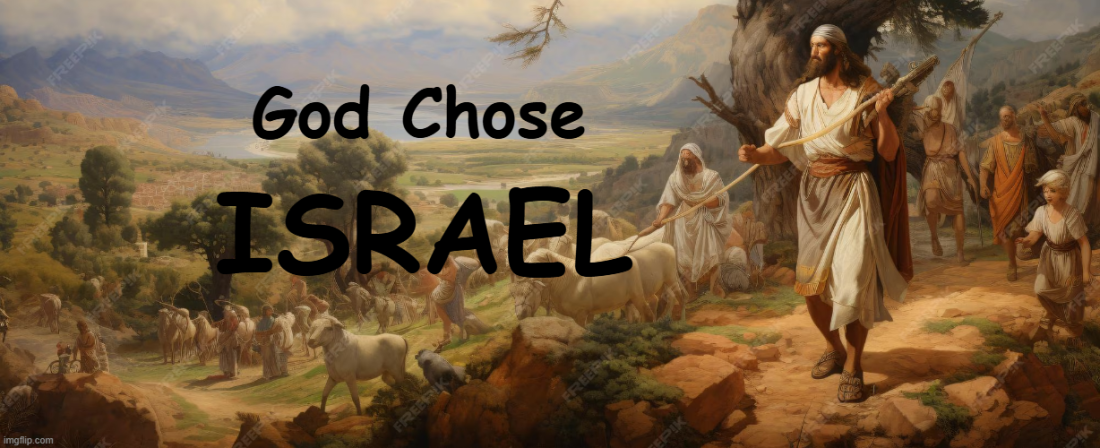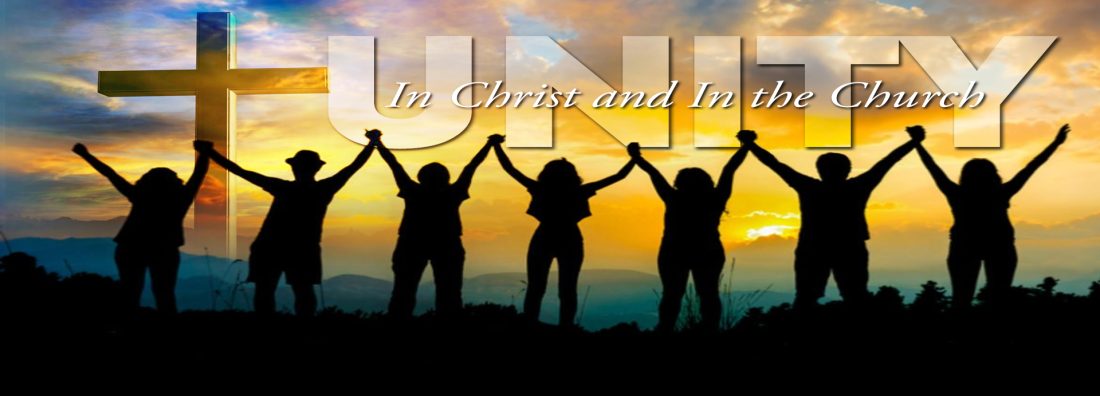This Rejoice & Praise God Sunday Open Thread, with full respect to those who worship God on the Sabbath, is a place to reaffirm our worship of our Creator, our Father, our King Eternal.
It’s also a place to read, post, and discuss news that is worth knowing and sharing. Please post links to any news stories that you use as sources or quote from.
In the QTree, we’re a friendly and civil lot. We encourage free speech and the open exchange and civil discussion of different ideas. Topics aren’t constrained, and sound logic is highly encouraged, all built on a solid foundation of truth and established facts.
We have a policy of mutual respect, shown by civility. Civility encourages discussions, promotes objectivity and rational thought in discourse, and camaraderie in the participants – characteristics we strive toward in our Q Tree community.
Please show respect and consideration for our fellow QTreepers. Before hitting the “post” button, please proofread your post and make sure your opinion addresses the issue only, and does not confront or denigrate the poster. Keep to the topic – avoid “you” and “your”. Here in The Q Tree, personal attacks, name-calling, ridicule, insults, baiting, and other conduct for which a penalty flag would be thrown are VERBOTEN.
In The Q Tree, we’re compatriots, sitting around the campfire, roasting hot dogs, making s’mores, and discussing, agreeing, and disagreeing about whatever interests us. This board will remain a home for those who seek respectful conversations.
Please also consider the Guidelines for posting and discussion printed here:
https://www.theqtree.com/2019/01/01/dear-maga-open-topic-20190101/
On this day and every day –
God is in Control
. . . and His Grace is Sufficient, so . . .
Keep Looking Up

Hopefully, every Sunday, we can find something here that will build us up a little . . . give us a smile . . . and add some joy or peace, very much needed in all our lives.
“This day is holy to the Lord your God;
do not mourn nor weep.” . . .
“Go your way, eat the fat, drink the sweet,
and send portions to those for whom nothing is prepared;
for this day is holy to our Lord.
Do not sorrow,
for the joy of the Lord is your strength.”




God Chose Israel
Speaking of the nation of Israel, Deuteronomy 7:7-9 tells us, “The LORD did not set His affection on you and choose you because you were more numerous than other peoples, for you were the fewest of all peoples. But it was because the LORD loved you and kept the oath He swore to your forefathers that He brought you out with a mighty hand and redeemed you from the land of slavery, from the power of Pharaoh king of Egypt. Know therefore that the LORD your God is God; He is the faithful God, keeping His covenant of love to a thousand generations of those who love Him and keep His commands.”
God chose the nation of Israel to be the people through whom Jesus Christ would be born—the Savior from sin and death (John 3:16). God first promised the Messiah after Adam and Eve’s fall into sin (Genesis chapter 3). God later confirmed that the Messiah would come from the line of Abraham, Isaac, and Jacob (Genesis 12:1-3). Jesus Christ is the ultimate reason why God chose Israel to be His special people. God did not need to have a chosen people, but He decided to do it that way. Jesus had to come from some nation of people, and God chose Israel.
However, God’s reason for choosing the nation of Israel was not solely for the purpose of producing the Messiah. God’s desire for Israel was that they would go and teach others about Him. Israel was to be a nation of priests, prophets, and missionaries to the world. God’s intent was for Israel to be a distinct people, a nation who pointed others towards God and His promised provision of a Redeemer, Messiah, and Savior. For the most part, Israel failed in this task. However, God’s ultimate purpose for Israel—that of bringing the Messiah into the world—was fulfilled perfectly in the Person of Jesus Christ.
xhttps://www.gotquestions.org/why-God-choose-Israel.html
Verses of Interest
“For you are a people holy to the Lord your God. The Lord your God has chosen you out of all the peoples on the face of the earth to be his people, his treasured possession.” – Deuteronomy 14:2
“I will establish my covenant as an everlasting covenant between me and you and your descendants after you for the generations to come, to be your God and the God of your descendants after you.” – Genesis 17:7
“Now if you obey me fully and keep my covenant, then out of all nations you will be my treasured possession. Although the whole earth is mine.” – Exodus 19:5
“For you are a people holy to the Lord your God. The Lord your God has chosen you out of all the peoples on the face of the earth to be his people, his treasured possession.” – Deuteronomy 7:6
“The wild animals honor me, the jackals and the owls, because I provide water in the wilderness and streams in the wasteland, to give drink to my people, my chosen, the people I formed for myself that they may proclaim my praise.” – Isaiah 43:20
“You only have I chosen of all the families of the earth; therefore I will punish you for all your sins.” – Amos 3:2
“He says: ‘It is too small a thing for you to be my servant to restore the tribes of Jacob and bring back those of Israel I have kept. I will also make you a light for the Gentiles, that my salvation may reach to the ends of the earth.’” – Isaiah 49:6
“But I have raised you up for this very purpose, that I might show you my power and that my name might be proclaimed in all the earth.” – Exodus 9:16
“Observe them carefully, for this will show your wisdom and understanding to the nations, who will hear about all these decrees and say, ‘Surely this great nation is a wise and understanding people.’” – Deuteronomy 4:6
“For I know the plans I have for you,’ declares the Lord, ‘plans to prosper you and not to harm you, plans to give you hope and a future.” – Jeremiah 29:11
“The people of Israel belong to God. He made them His adopted children. He revealed His glory to them. He made covenants with them and gave them His law. They are the descendants of the patriarchs and are human ancestors of Christ, who is God over all, blessed forever.” – Romans 9:4-5
“Because of the Lord’s great love we are not consumed, for his compassions never fail. They are new every morning; great is your faithfulness.” – Lamentations 3:22-23
“You will be faithful to Jacob, and show love to Abraham, as you pledged on oath to our ancestors in days long ago.” – Micah 7:20
“And now, Israel, what does the Lord your God ask of you but to fear the Lord your God, to walk in obedience to him, to love him, to serve the Lord your God with all your heart and with all your soul.” – Deuteronomy 10:12
“As for you, if you walk before me in integrity of heart and uprightness, as David your father did, and do all I command and observe my decrees and laws, I will establish your royal throne over Israel forever, as I promised David your father.” – 1 Kings 9:4-5
“For my eyes have seen your salvation, which you have prepared in the sight of all nations: a light for revelation to the Gentiles, and the glory of your people Israel.” – Luke 2:30-32
“For there is no difference between Jew and Gentile—the same Lord is Lord of all and richly blesses all who call on him, for everyone who calls on the name of the Lord will be saved.” – Romans 10:12-13
“I the Lord do not change. So you, the descendants of Jacob, are not destroyed.” – Malachi 3:6









